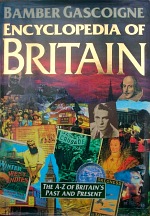| |

More than 5000 entries on the history, culture and life of Britain (published in 1993 by Macmillan, now out of print)
|
Clement Attlee
|
|
|
(1883–1967, earl Attlee 1965)
The first leader of the Labour party to come from the professional classes and the first Labour prime minister with an absolute majority in the House of Commons (1945–51). Trained as a lawyer, be entered parliament as MP for Limehouse in 1922. He was one of the few Labour members to hold his seat in the 1931 election, after which he became deputy to the new leader, George Lansbury (1859–1940), whom he succeeded in 1935. He served with *Churchill in the wartime coalition cabinet and then defeated him heavily in the 1945 election.
|
|
|
|
|
Attlee's postwar government enacted a broad programme of socialist legislation in spite of conditions of austerity in which *rationing was extended even to bread and potatoes. By the end of 1946 acts had been passed nationalizing the Bank of England and laying the ground for extended national insurance and for the *National Health Service. The railways, the mines and the supply of gas and electricity soon followed into public ownership. Meanwhile Attlee had been closely involved in the process of dismantling the British empire, with independence given to India, Pakistan, Ceylon and Burma.
|
|
|
|
|
Yet he believed in Britain playing a strong role in world affairs; he accepted the need for British participation in the *Korean War and he set up the programme to develop an independent nuclear capability (ironic in view of his party's later conflicts on this issue). His majority was reduced to six in the 1950 election and he lost the election the following year, handing over the leadership of the party in 1955 to Hugh *Gaitskell.
|
|
|
|